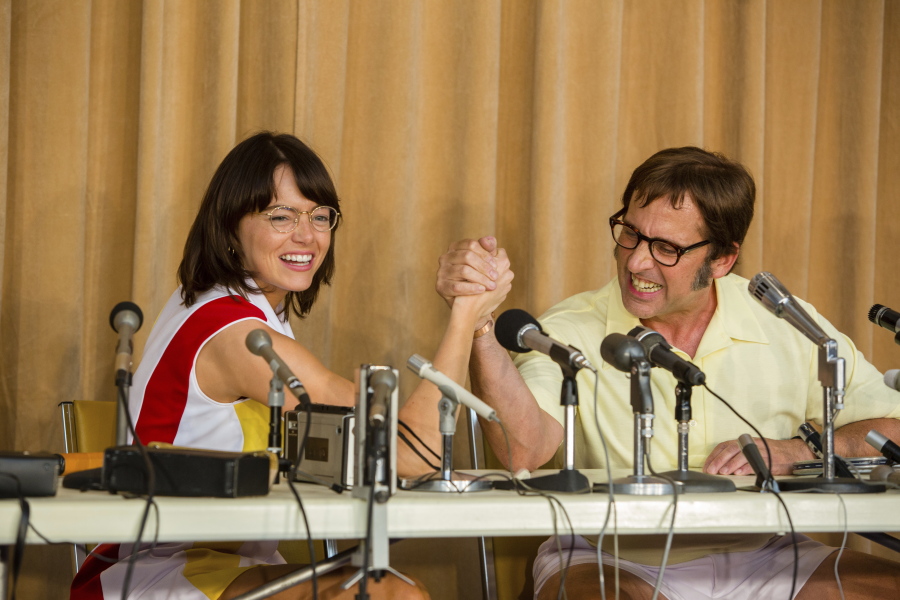Billie Jean King won on the tennis court that night in Houston 44 Septembers ago, beating Bobby Riggs in straight sets in an event that captured world attention and inspired the movie, “Battle of the Sexes.”
But circuses often feature more than one ring, and while one was unfolding on the Astrodome floor, another was being carried on live television to a domestic audience of 50 million or so, with a battle of the sexes vibe of its own.
It was there that Rosie Casals, then a 25-year-old elite player herself and a friend of King’s — and a fellow crusader for the rights of women players — found herself cast as a color analyst, working with Howard Cosell.
“I certainly did not enjoy myself,” she said in an interview to promote the film. “I would have much preferred to be on the floor watching it.”
In a neat technical trick, the real Cosell in the original footage is seen putting his arm around Natalie Morales, the actress who plays Casals, just as he did on the air in 1973. But that only was the start of Casals’ unpleasant evening.
“You could tell that he wanted to be the person — period,” she said. “That was very difficult, to hear him talk about tennis. I’d seen him talk about everything but tennis, so being the expert on tennis and what was going on strategy-wise and knowing Billie Jean as I did, it was very difficult to really feel comfortable with him.”
Casals recalled Cosell as a “know-it-all,” and said even though he was known to be difficult in working with everyone, his treatment of her surely was colored by having a young woman on the broadcast team.
“Absolutely,” she said. “I was battling. I’d say my peace and I would interject when I felt I should … I didn’t care. I was never going to work with him again anyway.”
The behind-the-scenes battle over ABC’s crew is covered in the movie, with King — played by Emma Stone — threatening to quit if longtime nemesis Jack Kramer was assigned as an analyst.
Kramer eventually withdrew, leaving Gene Scott to replace him and ruining the battle of the sexes producers had envisioned on the broadcast between Kramer and Casals.
“They encouraged me to really rag on Riggs and say derogatory comments, which I had done on my own anyway,” she said, laughing.
Scott turned out to be too nice, though, making Casals the heavy.
“Even though it was supposed to be the ‘Battle of the Sexes’ on and off the court, it didn’t come off that way,” she said. “I think I came off as the harshest, tough-(expletive) person. The fact that (Riggs) lost, that made it worse. It was not a good experience for me in my television career.”
Entertainment circus
Casals is among a relatively few people involved with the broadcast alive to tell the tale. Another is Howard Katz, a former president of ABC Sports and now NFL senior vice president in charge of the schedule.
Then he was a 23-year-old production assistant primarily involved in graphics, and someone who grew close to Cosell over time and still considers him “maybe the smartest guy I’ve ever been around and at the same time the most insecure person I’ve ever been around.”
The fact that Cosell was on the scene in Houston only added to the fun.
“It was part of an enormous entertainment circus,” Katz said of the match. “It was wild. I think it was a unique entertainment.”
Katz compared it to other TV extravaganzas of the era, including heavyweight boxing matches, but he said its impact was real.
“I think Billie Jean thought it really was important for the women’s movement in terms of trying to establish parity in the marketplace, parity with respect to prize money,” he said.
“Yes, it was a made-for-television event and it was a spectacle, but it wasn’t just for show. I think it was really important to the women’s movement at that time and to me her opinion is the only one that matters.”
Casals thought it was important then, too, and still thinks so. She was glad the struggle for equal treatment is a big part of the film.



